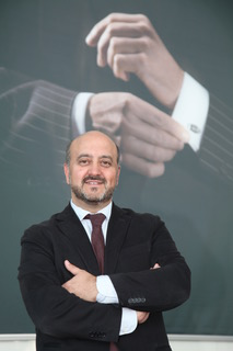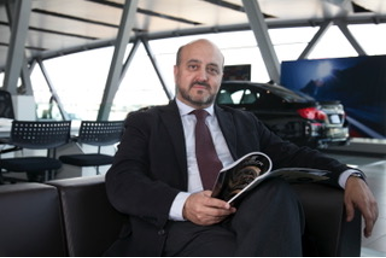.
Approximately a year ago, berocam had the opportunity to incorporate Manuel López into its Advisory Board. Manuel López is a former executive of the BMW Group, having held positions such as Regional Director in Spain, National Sales Director for BMW in Mexico, CEO of BMW Madrid, and Director of Sales Channel Development at BMW Ibérica.
Manuel was chosen in 2015 by the newspaper El Economista as one of the 50 most influential executives nationally and one of the top three in the automotive industry.
Thanks to his extensive experience, since joining, Berocam has developed several data consulting projects within the automotive sector. These projects have been a complete success in an industry undergoing significant transformation and that has been heavily impacted during the pandemic.
1. Manuel, after an extensive career in the automotive sector, how would you summarize it?
If I had to summarize it in a few words, I would say I’ve been very fortunate because I’ve always been working closely with the dealership network, both in Spain and Mexico.

This has meant having a very close, extraordinarily close relationship with more than 120 entrepreneurs with whom I’ve had the opportunity to exchange experiences, undoubtedly accumulating invaluable learning.
2. Currently, we are facing challenges that were not imaginable years ago. What challenges does the automotive distribution business need to confront?
The truth is that the challenges are not few
- It is necessary to remember that the automotive industry is made up of large industrial groups with billions of investments in facilities, machinery, and powerful research and development equipment. Therefore, the first point is to affirm that it is an industry very intensive in financial and human capital.
- The need to maintain costs per unit manufactured implies higher production volume and the generation of synergies between manufacturers in purchasing processes and even product development.
- The last link in this chain is the distributor, who acts as a transmission belt for the brands:
- The brands want the dealerships to convey the image of each brand at the end consumer level, which involves very high investments, along with significant operating costs. Therefore, the assertion made for the brands of being businesses intensive in financial and human capital extends through the distribution networks.
- Secondly, the brand’s commercial policy extends through its distributors, so even on a different scale, the results are the same: low levels of operational profitability.
3. How do you think dealership networks are prepared to address these challenges?
Dealership networks are showing greater responsiveness than the brands when it comes to detecting customer needs due to their proximity. Therefore, it is necessary to digitize their businesses to generate this fluid communication.
On the other hand, the incorporation of new products developed by the brands also involves investments for the dealerships, such as the inclusion of repair workshops equipped to work with high-voltage batteries or the adaptation of facilities for battery charging by incorporating clean energy sources (in our country, solar panels, and in others, such as the Nordic countries, wind turbines), and so on.

5. Finally, Manuel, we live in the digital age, the age of data. As you mentioned, it is necessary to digitize the dealership network. How do you think they should approach this challenge?
Digitizing the dealership network not only involves online sales, lead capture, and follow-up. It is also necessary to address the administrative and management processes that are behind all of this.
To be specific, we are talking about going paperless, logistics processes, customer engagement, defining the customer lifecycle and leveraging it, database management, IT infrastructure, and business management dashboards.
It is necessary for the dealership network to have a “global picture” of all these processes to define strategies more precisely and to know in detail the possible deviations, without the need to resort to traditional, often inefficient means.






